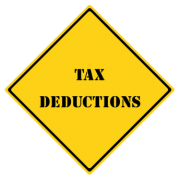IRS Extends Deadline For Americans To Register For Full Stimulus Money
 Americans who are still awaiting the arrival of their full coronavirus stimulus check received more time this week to register for the extra $500 payment for their children.
Americans who are still awaiting the arrival of their full coronavirus stimulus check received more time this week to register for the extra $500 payment for their children.
The IRS just announced that it was extending the deadline to register for the money — up to $1,200 for one person and $3,900 for a family of five — to Nov. 21. The cutoff to provide information to the government agency was originally Sept. 30.
Federal beneficiaries who automatically received the $1,200 payment but have not yet received the $500 for their dependents under the age of 17 can use the IRS’ nonfiler web tool to claim the money.
The extended deadline is only for individuals who receive Social Security, Supplemental Security Income, railroad retirement benefits and veterans’ benefits who did not file a tax return in 2018 and 2019. Those individuals — including those who are homeless, low-income people and others — can register for the payment and must submit their information through the IRS’ “nonfilers” tool.
The tool is intended for couples who earn less than $24,400 and individuals who earn less than $12,200, as well as those who are homeless. The IRS noted that whether or not individuals have earned an income or work, they’re eligible to receive the payments.
You can track your stimulus check in the mail by using the U.S. Postal Service’s Informed Delivery tool.
Up to 8.7 million individuals who are eligible to receive the payments have yet to receive the money due to incomplete IRS and Treasury Department records, according to a recent report from the Government Accountability Office, Congress’ auditing arm.
The watchdog found that while the Treasury Department and IRS have tried to address distribution issues involving the checks, the agencies still “lack updated information on how many eligible recipients have yet to receive these funds.”
The IRS previously extended deadlines for other nonfilers to claim their money from Oct. 15 to Nov. 21.
Americans who don’t receive their full payment this year can claim a credit when they file their 2020 tax returns next year.
Source: WDRB

